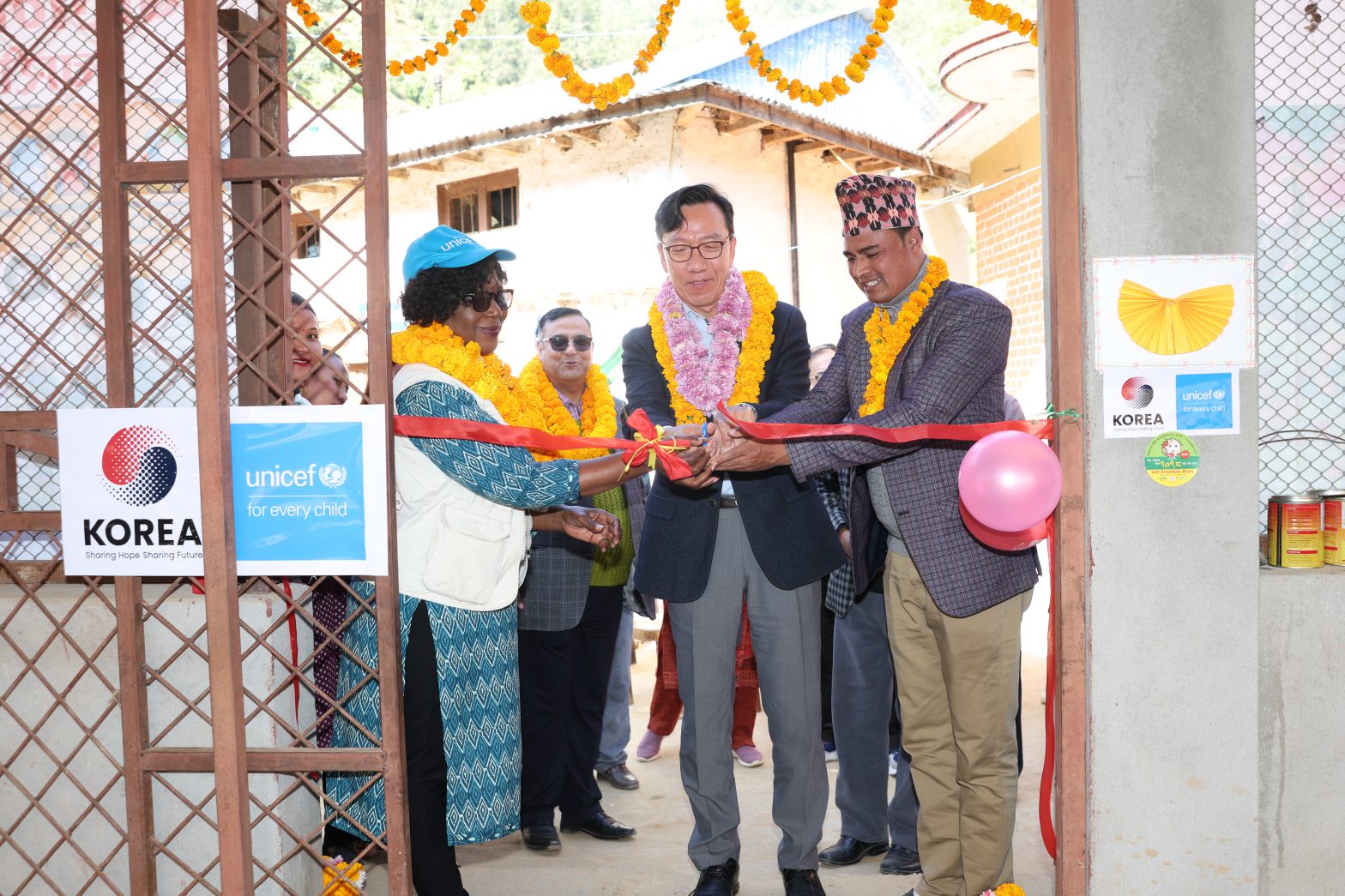Kathmandu: The Ambassador of the Republic of Korea to Nepal, Park Tae-young, and UNICEF Representative to Nepal, Alice Akunga, visited flood and landslide-affected communities in Kavrepalanchowk District on November 29, 2024, to assess the damage and support recovery efforts. During their visit, they officially opened a child-friendly space and handed over essential health and hygiene supplies to flood-affected families.
The heavy monsoon rains in September 2024 led to widespread flooding and landslides across Nepal, damaging thousands of homes and critical infrastructure, including water and sanitation facilities, schools, and healthcare centers. UNICEF, in collaboration with the Government of Nepal and humanitarian partners, has been working to provide lifesaving supplies, as well as social and protection services, to those most affected by the disaster.
“The recent floods have significantly increased protection risks for vulnerable groups, particularly women, children, adolescents, and persons with disabilities,” said Alice Akunga, UNICEF Representative to Nepal. “With support from the Government of Korea, UNICEF is establishing eight child-friendly spaces where children can play, heal, and receive psychosocial support.”
As part of the ongoing relief efforts, UNICEF is addressing healthcare needs in the affected areas, where many health facilities have been damaged. In response to a request from the Government of Nepal, UNICEF has already set up a medical tent in Panauti Municipality. Thanks to additional funding from the Government of Korea, ten more medical tents, along with essential health equipment and supplies, are being established.
“The timely response to the floods and landslides in Panauti Municipality helped community members continue accessing lifesaving social and protection services, including healthcare,” said Ram Saran Bhandari, Mayor of Panauti Municipality. “We are grateful to the Government of the Republic of Korea and UNICEF for providing medical tents and health supplies, which have greatly benefited women and children in our municipality.”
In addition to healthcare support, UNICEF, with the generous contribution of the Government of Korea, is working to provide safe water, sanitation, and hygiene (WASH) supplies to 3,000 families in flood-affected areas. Reconstruction of critical water and sanitation facilities is also underway to restore essential services and reduce the risk of waterborne disease outbreaks in the region.
“We are proud to partner with UNICEF to ensure that the most vulnerable communities affected by the disaster receive critical support in a timely manner,” said Park Tae-young, Ambassador of the Republic of Korea to Nepal. “Today, we distributed lifesaving supplies, including WASH supplies and newborn kits, which include warm clothes and blankets for mothers and infants as temperatures drop at the start of winter.”
With a generous contribution of USD 500,000 from the Government of Korea, UNICEF Nepal has been able to swiftly address the urgent needs of the affected populations, including delivering critical supplies before the onset of the cold season.
The combined efforts of UNICEF, the Government of Korea, and other humanitarian partners continue to provide vital support to flood-affected communities, helping them recover and rebuild their lives in the aftermath of one of the worst natural disasters to hit Nepal in recent years.
